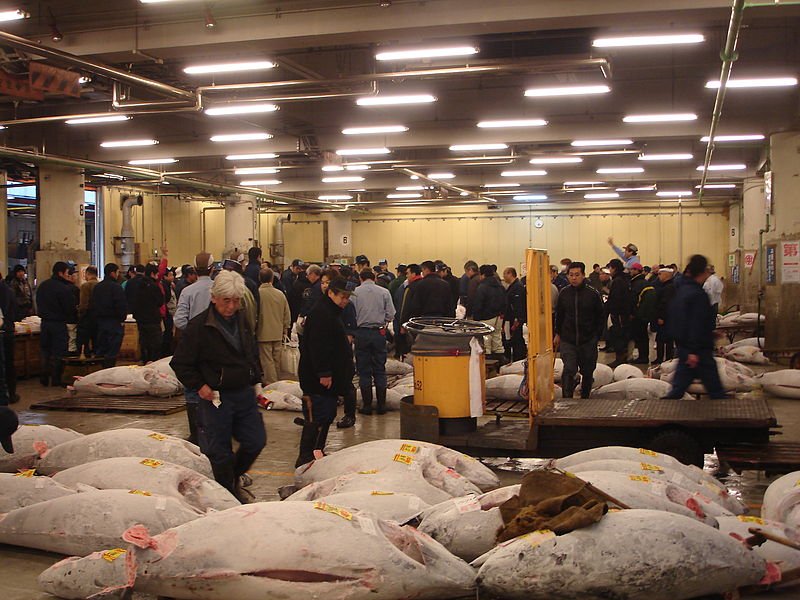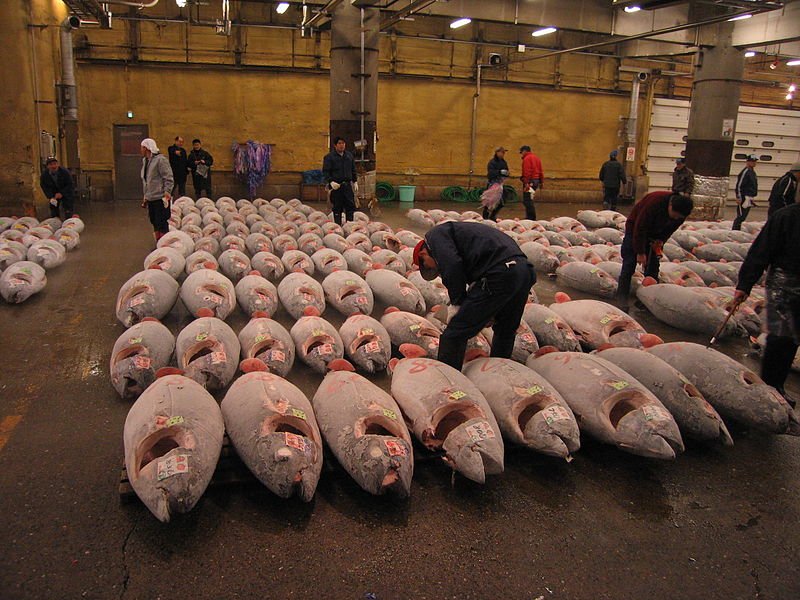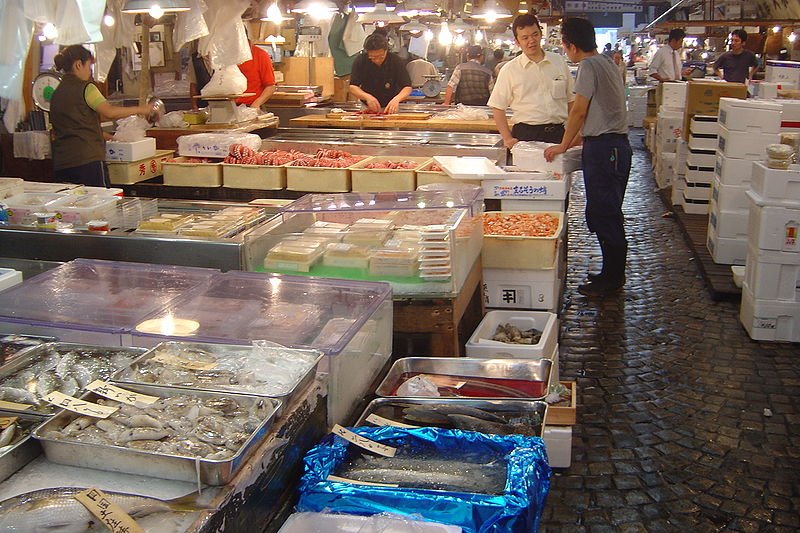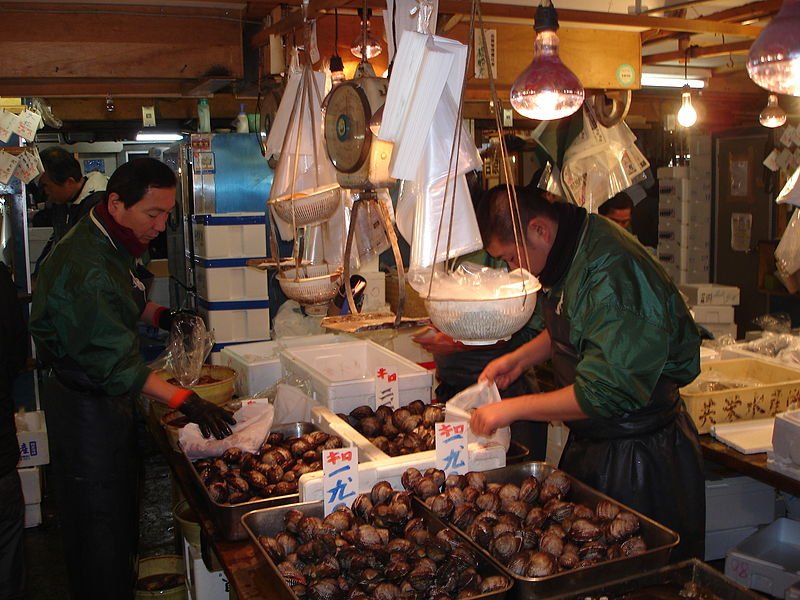 Tsukiji Fish Market, Tokyo
Tsukiji Fish Market, TokyoSource: http://commons.wikimedia.org/wiki/File:Tsukiji_fish_market_7.jpg
Author: Humanoid one

Author: Humanoid one

The Tsukiji Fish Market (築地市場) is the world's largest wholesale fish and seafood market. Officially the Tokyo Metropolitan Central Wholesale Market (東京都中央卸売市場), the Tsukiji Fish Market is located in Chuo, on the southern part of central Tokyo facing the Sumida River near Tokyo Bay. The fish market has approximately 900 wholesale fish dealers each operating a small stall. A total of over 60,000 people work at Tsukiji Fish Market, from wholesalers to auctioneers to distributors and retailers.
The Tsukiji Fish Market traces its history back to the early development of Tokyo, to when Shogun Tokugawa Ieyasu established a fish market to provide supplies for Edo Castle. After the royal household had had its pick, the balance supply was then sold near the Nihonbashi bridge at Uogashi, the fish quay that lined the canals of Edo during those days.
The fish market existed near the Nibonhashi bridge until the 1 September 1923 Great Kanto Earthquake, which devastated much of Tokyo, including the Nihonbashi Fish Market. A decision was then taken to relocate the fish market to Tsukiji. The first modern facility at Tsukiji began operating in 1935, with branch markets providing auxiliary support. Today Metropolitan Tokyo is served by three major fish markets including the one at Tsukiji, which handles the lion share of the catch.
 Frozen tuna at Tsukiji Fish Market
Frozen tuna at Tsukiji Fish MarketSource: http://commons.wikimedia.org/wiki/File:Tsukiji_Fish_market_and_Tuna.JPG
Author: Fisherman

Author: Fisherman

The Tsukiji Fish Market has two sections. The outer market comprise both wholesale as well as retail shops selling Japanese kitchenware and supplies for Japanese kitchens and sushi restaurants. The inner market is where all the wholesale work takes places. This is where the fish are brought in. On any given day, there could be over 400 different types of marine life of all types being traded here. Indeed the market handles over 2000 metric tons of seafood a day.
Tsukiji starts work at 3:00am in the morning when the catch are brought in, not only by ship, but also by trucks from planes all over the world. The most impressive section of the market is the one dealing with the frozen tunas.
 Stalls at Tsukiji Fish Market
Stalls at Tsukiji Fish MarketSource: http://commons.wikimedia.org/wiki/File:Tokyo_Tsukuji_6_052.jpg
Author: David Monniaux

Author: David Monniaux

Auctioning starts at 5:20am in the morning, and only licensed bidders can participate. Tourists intending to visit the market should reach it by 5:00am and watch the proceedings from a designated area. Activities at the market starts to declined by 8:00am, and by 11:00am, many of the wholesale shops have started to call it a day.
Tourist Information
Tsukiji Fish MarketOpening Hours (for tourists): 5:00am
 Stall at Tsukiji Fish Market
Stall at Tsukiji Fish MarketSource: http://commons.wikimedia.org/wiki/File:Tsukiji_fish_market_21.jpg
Author: Humanoid one

Author: Humanoid one

Getting there
Take the Toei Oedo Line (E-16) to the Tsukijishijo Subway Station and enter from there. The market has three entrances A1, A2 and A3. Latest updates on Penang Travel Tips
Latest updates on Penang Travel Tips
 Map of Roads in Penang
Map of Roads in Penang
Looking for information on Penang? Use this Map of Roads in Penang to zoom in on information about Penang, brought to you road by road.
Copyright © 2003-2025 Timothy Tye. All Rights Reserved.

 Go Back
Go Back